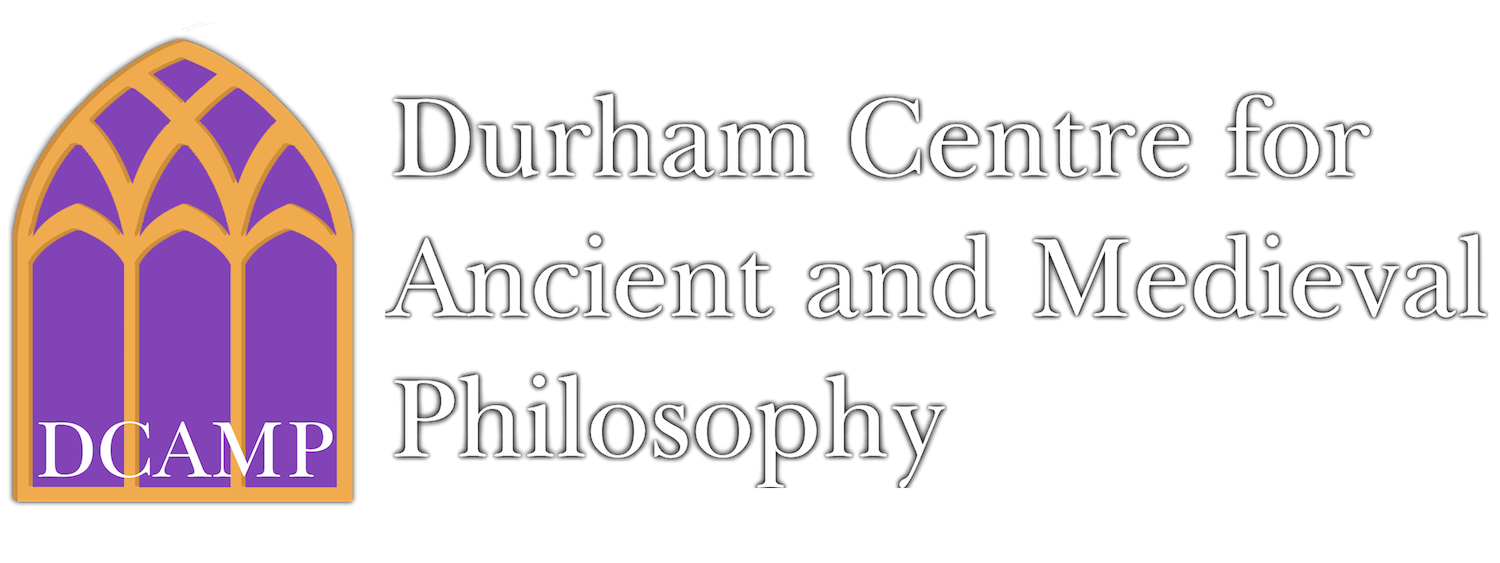Research seminar series and conference in 2021/22
Michaelmas Term 2021:
- 14 October 2021: Rainer Thiel (Universität Jena, Germany), “Elementary philosophical teaching in late antique Alexandria”
- 21 October 2021: Matthias Haake (Universität Bonn, Germany), “All over the Ancient Mediterranean world? The social figure of the intellectual in the Greek and Roman worlds from the Archaic period to Late Antiquity. A comparative approach”
- 28 October 2021: Reviel Netz (Stanford University, US), “Otium and civil society”
- 11 November 2021: Katharina Volk (Columbia University, US), “Who is the wisest of them all? (Dis)claiming authority in Cicero’s Laelius de amicitia”
- 25 November 2021: Matthias Perkams (Universität Jena, Germany) “Sergius of Rēšʿaynā and the Mediterraneo-Mesopotamian intellectual networks around A.D. 500”
Epiphany Term 2022:
- 20 January 2022: Courtney Roby (Cornell University, US), “Hand over mind: technicals and intellectuals”
- 3 February 2022: Thomas Schmitz (Universität Bonn, Germany), “Lucian’s depiction of Greek intellectuals in the Roman Empire”
- 17 February 2022: Peter von Möllendorff (Universität Gießen, Germany), “Dialogues of Gods, and Beasts: Lucianic ways of portraying intellectuals”
- 3 March 2022: Carmen Cardelle de Hartmann (Universität Zürich, Switzerland), “Intellectual pursuits in Anglo-Saxon England: Aldhelm of Malmesbury’s antique learning”
Easter Term 2022:
- 28 April 2022: Dennis Pausch (Technische Universität Dresden, Germany), “Vir litteratus avant la lettre? The emperor Claudius’ intellectual interests as elite self-representation”
All guest lectures will take place online (via “Zoom”) from 17.00 until 18.30 h. Everyone is welcome to attend. Advance registration should be made via e-mail.
Specific approach and methodological considerations: This seminar series will be dealing with aspects such as the construction of authority, (self-)presentation, forms of knowledge, the social and ethical implications of learnedness, and the constitution of networks. The term “intellectual” is, of course, a modern one and does not really have a direct equivalent in Greek or Latin; the series will problematise the term and identify ancient concepts which are comparable. This is a topic to which specialists from different areas have something to contribute: philologists, historians, philosophers, archaeologists, art historians, theologians and even sociologists. The focus will not simply be on texts, although they will constitute the main focus. Special attention will be paid to literary genres such as historiography, biography, scientific and technical writing, and epistolography, but also to certain forms of poetry (e.g. Ausonius’ Professores).
More specifically, the following questions will be addressed: What constitutes an “intellectual” in antiquity? To what extent can ancient intellectuals be understood as public figures? How much of their knowledge do they share with others and for what purposes? How much do they directly or indirectly contribute to the functioning of society? Were some of them classified as ‘champions’, ‘pioneers’, ‘heroes’, ‘legends’ or ‘dissidents’? What about criticism and mockery of intellectuals, especially in genres such as comedy, satire and epigram (e.g. Socrates in Aristophanes’ Clouds)? In what way is their status mirrored by linguistic and stylistic characteristics (e.g. the use of languages for special purposes) and rhetorical elements? How are patronage and the existence of schools of thought related to intellectual figures, and how much scholarly independence can ancient thinkers claim for themselves? What about the geographical dimension, i.e. the occurrence of intellectuals in certain spaces or regions? What kind of impact did ancient figures of intellectuals have on later periods?
The concluding conference, for which there will be more than a dozen additional speakers, will take place from Thursday 16 until Saturday 18 June 2022. Whether this event will be conducted online or face-to-face (i.e. on the Durham campus) will depend on the further development of the pandemic. To add a new facet to the way in which we conduct our annual research themes, it is also planned to schedule a one-day workshop for our undergraduate, M.A. and PhD students.
Organisers: Thorsten Fögen & Phillip Horky.
